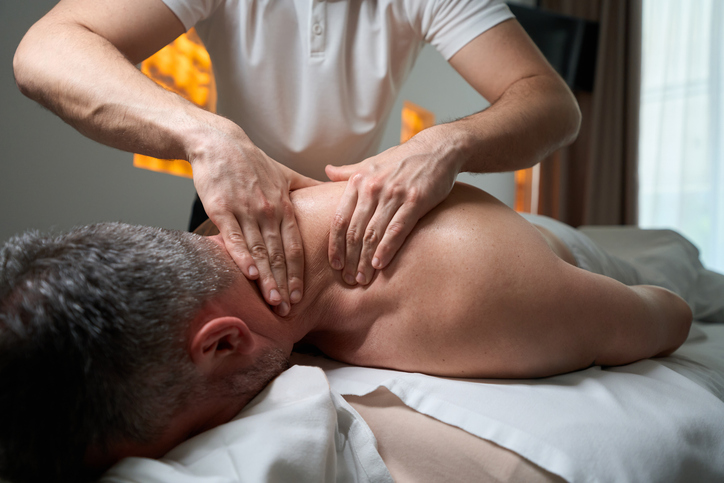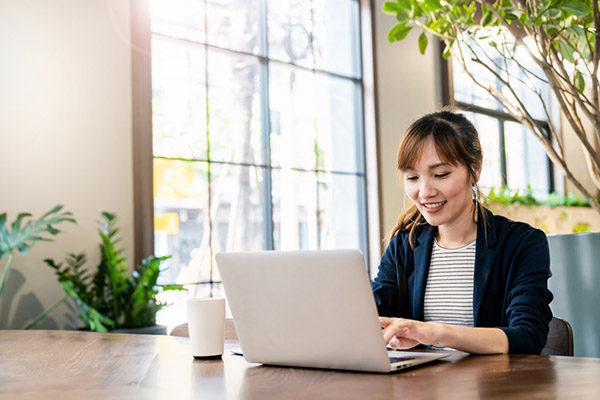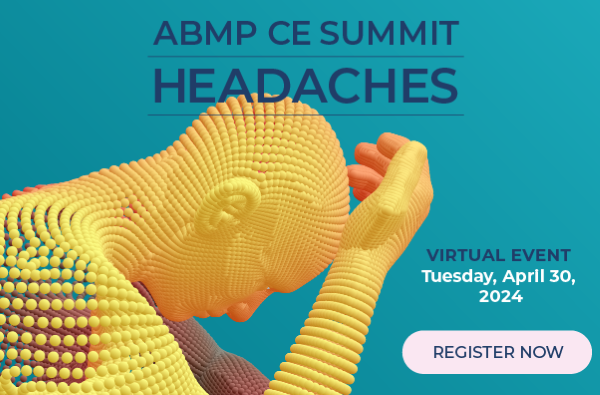10/19/2020
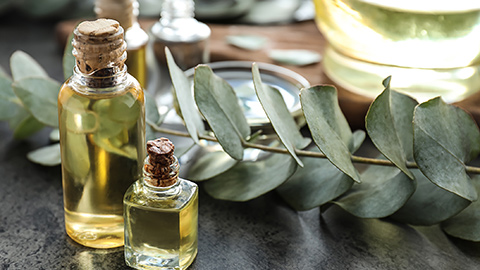
We’re living in unprecedented times. Anne Williams joins us to explain how essential oils can help keep us supported. Whether using them for stimulation or sedation or focus or memory, Anne guides listeners through the science and history of many essential oils, including her four favorite for right now.
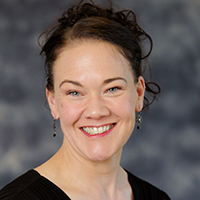
This episode sponsored by Anatomy Trains.
00:00 Kristin Coverly: Anatomy Trains is excited to announce a new on-demand video course with Tom Myers coming soon. Deeper ground, restoration, and vitality for the female pelvis, reach your deeper ground of embodied awareness and strategic confidence with this four-hour tour of the female pelvis, including its key points and unique challenges. Course highlights include hands-on, palpation certainty, and technique review for the major muscle groups, assessments and techniques for posterior and anterior pelvic floor, psoas complex and diaphragm, common perinatal biomechanical issues explained, and much more. Sign up for the Anatomy Trains newsletter at anatomytrains.com to be notified when the course is available.
00:52 Darren Buford: Well, this is Darren Buford, and thanks for joining us for the ABMP Podcast. Before we begin, I just wanna say that you're in for a special treat this week. It's ABMP's 2020 CE summit, and for this week, we've recorded three podcasts, one with Anne Williams, Angie Parris-Raney, and Massage Business Blueprint, each of which will roll out on Monday, Tuesday, and Wednesday. You could also catch the full video version of these podcasts by registering online and attending the summit at abmp.com/summit. We hope you enjoy.
[music]
01:33 DB: Welcome to The ABMP podcast. My name is Darren Buford, I'm the editor-in-chief of Massage and Bodywork magazine and Senior Director of Communications for ABMP. I'm joined by my co-host, Kristin Coverly, licensed massage therapist and Director of Professional Education for ABMP. Our goal is to connect with luminaries and experts in and around the massage, body work, and wellness profession in order to talk about the topics, trends and techniques that affect our listeners' practices. Our guest today is Anne Williams. Anne is the Director of Education and Co-founder of Massage Mastery Online, specializing in digital textbooks for 21st century massage therapists. Anne has been a licensed massage practitioner for 23 years, and is a former aesthetician, reflexologist, aromatherapist and spa consultant. She is the former directive education for ABMP and is the author of Spa Bodywork and Massage Mastery. Hello Anne and Kristin.
02:21 Anne Williams: Hi. I'm excited to be here.
02:25 Kristin Coverly: Welcome, we're so excited for you to be here and excited to talk to you about aromatherapy, which I know is something that you love, and I actually was so excited and had the honor and opportunity to attend a full-day workshop on aromatherapy with you, essential oils. It was such a beautiful, wonderful day and your passion for this subject shown through every pore and in every minute of that day was so special. So we're so excited to talk to you about this topic, which so many people are interested in, and I know you just created a presentation called Aromatherapy: For This Moment In History. I think we should all do it. Pum, pum, pum.
[laughter]
03:03 DB: Pum, pum, pum.
03:07 KC: So tell us a little bit more about that. What inspired you to create that content, to go that route?
03:12 AW: Well, right now, we are living through an unprecedented time in history and interestingly Kristin, I was just thinking about that aromatherapy workshop, it happened in late January of 2020, and literally three weeks later, we were all starting to hear about COVID. So this presentation is really about how we keep our nervous system calm and supported, how we keep our anxiety and depression in check while we deal with the craziness, that is 2020, and it continues to be kind of ongoing craziness, like just when we think we have a handle on it, we see those numbers, COVID cases surge, we're all dealing in America with an upcoming election and the political acrimony that our country is facing, and that's along with the general and normal new cycle. So this is just a challenging time and essential oils can help support us and show us the way forward.
04:20 DB: Anne, the presentation describes essential oils that help us improve our mental clarity, focus, and mental productivity. How can essential oils support these functions?
04:31 AW: So there are numerous essential oils that are classified as neuro-stimulants, so these are agents that stimulate the central nervous system. And one of the things I know that I've dealt with is when the news cycle sort of becomes really overwhelming, I find myself checking the news throughout the day, I find myself really distracted, and it's much more difficult to do effortful mental work, so one of the things I like to do is diffuse these really powerful neuro-stimulants, and I'll give you a few examples in just a moment, with a citrus essential oil, which is uplifting. It's a little more balancing, it's a little bit stimulating, but not too stimulating, and I do that throughout my work day. It helps increase my productivity, allows me to do more effortful mental work, and also helps with all of these memory functions. There's a ton of research out there right now that's really emerging about how essential oils and inhaling essential oils can improve memory allocation of attention. They're being used for things like Alzheimer's disease and dementia. So there's a lot of power there.
05:41 AW: And four of my favorites are bay laurel, eucalyptus globules, rosemary, and thyme. Those are great strong neuro-stimulants that you can use in a diffusion, and the other ones that I would blend with that is bergamot. We're gonna find throughout our discussion that bergamot is the great neurotransmitter modulator. It's the thing that comes in and helps the brain achieve balance in things like glutamate, in things like serotonin and dopamine levels. So bergamot from citrus bergamia, is a real key to mental wellness.
06:23 KC: I get excited just hearing the names of them. [laughter]
06:25 AW: I know.
06:27 KC: I wanna learn more. Anne knows so much, her depth of knowledge on each of the things, she's mentioning all these essential oil names, she could talk to you about for five hours on each one, and all I wanna do is say, "Tell us more about bay laurel." So before we jump into the next official question, can you tell us a little bit more for people who are brand new to the essential oil game, and aroma therapy, when you say "diffuse", tell us maybe a little bit more about that, so everyone is on board.
06:53 AW: You can use an electronic diffuser... An electric diffuser, not electronic, electric diffuser, which you can get at Target. You can use something really easy that just disperses the aroma into the air, the only thing is you don't wanna use heat. The real professional way to go is a nebulizing diffuser that you would purchase from an aromatherapy supplier, and those are around 100 bucks, but they're well worth it.
07:17 KC: Okay, great, thank you for that too. I think that'll be really helpful for a lot of people. So let's talk about the essential oils, that sedate, the central nervous system. How do these essential oils work and how would people use them?
07:31 AW: So this neuro-sedatives do the opposite of the neural stimulants, they sedate the central nervous system, and they do that in a number of ways, and research is getting very specific about the mechanisms behind aromatherapy and inhalation and olfaction. So one of the things they do is they act directly on GABA receptors, so that means they act like GABA in the brain when they're inhaled, and you know that GABA is the thing that helps with sleep allocation, it's the thing that really helps to take our nervous systems down a notch. So before you go to sleep, your GABA levels get higher. One of the things that we can do, again, we can use diffusion just in like a living space, or we can create an aroma mist with neuro-sedative essential oils, so that's one ounce of filtered water to 12-24 drops of essential oils in a bottle with a mister top and you always wanna mist over your head and shoulders, and then inhale, you don't wanna treat yourself like a wind shield and you wanna keep essential oils out of your eyes. Some of my favorite neuro-sedatives are German Chamomile Essential Oil. You can use Lavender, which is kind of a common neuro-sedative. Neroli is a great neural sedative, and so is ylang ylang. Those are lovely, beautiful aromas, again, you can balance those with a citrus, so maybe two drops of the stronger neuro-sedative, like two drops of ylang ylang to eight drops of bergamot, and that would be great to diffuse in your living room.
09:14 DB: Sounds so nice.
09:17 KC: And now, I just want that.
09:17 AW: I know.
09:17 KC: I want to be able to do that right now, right in this moment.
09:20 DB: Anne you describe a number of essential oils that demonstrate the ability to shift brain chemistry in research, can you talk a little bit about how these essential oils benefit wellness?
09:30 AW: Sure thing. One of the things that's happening right now, and it's really exciting, is there so much more research on how essential oils affect olfaction and affect brain chemistry. Now, there haven't been a lot of essential oils that have been researched at this point, but those that have been researched demonstrates some really notable results. For example, they can adjust dopamine levels, so if you have seriously depressed dopamine or if your dopamine levels are a little unbalanced, there are a number of essential oils that can bring your brain back into dopamine balance or increase suppressed dopamine, and I wrote them down just so that I could make sure that I remembered them off the top of my head. Those that have been tested are bergamot, clary sage, lavender, lemon, Melissa, bay laurel and basal. And those show the ability, again, to significantly increase suppressed dopamine levels or balance dopamine in the brain. And then the other great neurotransmitter that we're all familiar with is serotonin, which is implicated in situations of clinical depression, depression and anxiety, and essential oils really can, again, either boost, suppress serotonin or balance serotonin, dopamine, and GABA in the brain, and those essential oils, there are 10 of them that have been studied are atlas cedarwood, and we again find bergamot, that's the big neurotransmitter balancer, clary sage, lavender, lemon, Roman Chamomile, damask rose, sweet orange, and sandalwood.
11:18 AW: So again, you can use these in multiple ways, you can simply diffuse them in your living or work space, you can put them into a mist, you can put them into some expeller pressed vegetable oil, like sunflower oil from the health food store. Apply them to your body and then soak in a warm tub, that's a great idea, and you can dilute them down into a pillow mist, so six drops of essential oil formula to one ounce of oil, very, very light formulation, mist it over your pillow before you go to sleep, you hardly wanna detect the smell, if the smells really soft, these oils will help with your sleep patterns, if the smell is really strong, they're gonna disrupt sleep patterns.
12:05 KC: Again, I just want it. You know what I mean?
12:09 AW: Buy now.
12:09 KC: What could I buy on the way home today? So to get that prepared for tonight's sleep, that sounds great.
12:17 DB: Anne, can you list your top four essential oils to support us psychologically while we cope with the stressful times we're experiencing?
12:26 AW: Yeah, I can. And the number one would be bergamot right now, because as we know, this is really gonna support brain chemistry, and bergamot has a lovely spiritual meaning, its spiritual meaning is paying attention to the beauty in small moments, and we all have lots of small moments that are happening for us right now, as we walk to the couch and then to the kitchen, and then to our office and into the restroom and around again. Lavender, which again is a great brain chemistry essential oil, and lavender represents the noble heart, it means really showing up with our good intentions, being kind and compassionate with people, even when our views are different, so it has both a physiological and psychological effect and also this spiritual intention behind it, which is quite beautiful. Nutmeg is amazing, it's a euphoric essential oil, which means that it contains very small amounts of psychedelic properties and people go, "Oh no, like magic mushrooms." But not that strong, its property or the component is myristicin and it shows up in small levels, but what it does is give you a sense of expansion. It gives you a sense of being in your body and in the universe and connected to other people at the same time.
13:53 AW: So right now, when we're feeling so disconnected because we're separated from our loved ones and from our family and from our colleagues and co-workers, nutmeg really says, expand into those connections, they maintain... They are still strong, despite the fact that we are all separate right now, and probably the last one that I would choose, so I've got bergamot, lavender, and nutmeg. I'm gonna choose thyme, because thyme's spiritual meaning is courage for the journey, and thyme goes way back in history to the crusades, when ladies of the court would sew thyme onto a scarf that would go with the crusader as a talisman against harm and as a reminder to return soon to home. So I'm hoping that we can all return soon to a home, America that we recognize and that we all sort of are safe on this incredible journey that we're on while we deal with this challenging time in history.
14:58 KC: There's so much there too, and I love how each of the four that you just mentioned, have beautiful properties on their own, but then as a collective, the idea of everything that they support and the change that they can bring really does speak to what's happening today, so beautiful. So again, we could talk to you for so much longer, tell us a little bit more about the content that you cover in this course you just created, "Aroma therapy: For this Moment in History," and where people can learn more. Where can they find it?
15:26 AW: So I really look very specifically, and one of the things that always happens to me is I start talking about the physiological effects of essential oils, they are effects for the body because we're a massage therapist, so we're dealing with those effects all the time, like the anti-inflammatory or analgesic essential oils, and I really wanted to stay absolutely focused on the psychological effects of essential oils, so I cover that topic in depth and it stays pretty scientific, I really am presenting the research and then talking about what's a formulation that we can use and what's a method of application, so it's scientific, but it's also quite practical, and you can watch a copy for free at plantspiritlife.com and plantspiritlife.com is my passion project website. You can see by the irregularity of my blog posts that I rarely have time to work on it, but when I can, I do, because it truly is my passion project.
16:31 DB: I wanna thank our guest Anne Williams for joining us today. Anne, thank you so much. It's been delightful to connect with you again, and I know our listeners are gonna be really excited to take this information home and to purchase some of these products that we talked about today.
[laughter]
16:46 AW: Well, great, thank you so much, Darren and Kristin for having me. It's always great to reconnect with my ABMP tribe, I love you all so much.
16:56 KC: Right back to you, thank you. And that's wonderful information that every listener and learner is gonna take away and be able to apply immediately to their life. Thank you for that.
[music]
17:07 DB: We hoped you enjoyed the special summit week version of The ABMP podcast. Remember to join us online at the 2020 ABMP CE Summit to view the video version of this episode. Learn more at abmp.com/summit.
17:23 Speaker 5: This has been a production of Associated Bodywork and Massage Professionals. ABMP is the leading association for massage therapists and bodywork professionals in the United States and beyond. From liability insurance to professional advocacy, award-winning publications to the world's largest continuing education library for massage, to this podcast, no organization provides more for its members and the profession than ABMP. ABMP works for you.



